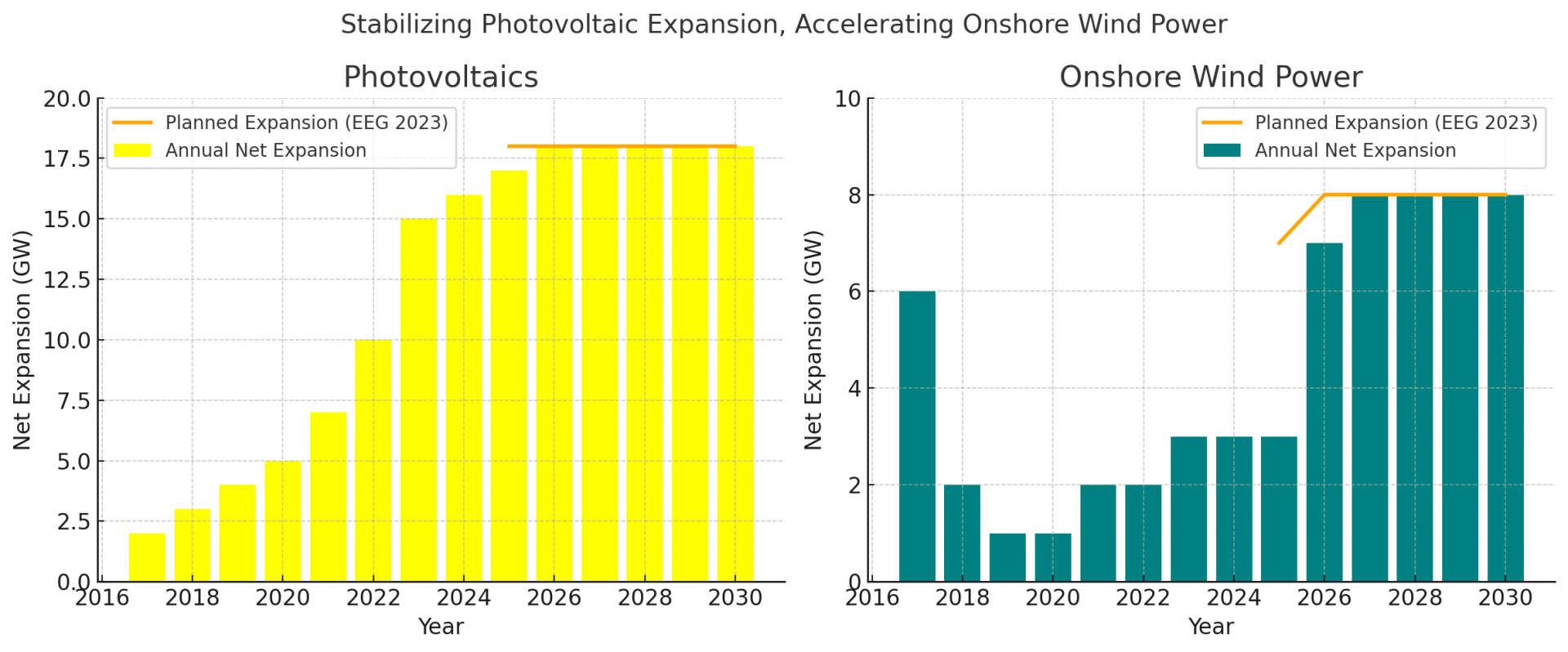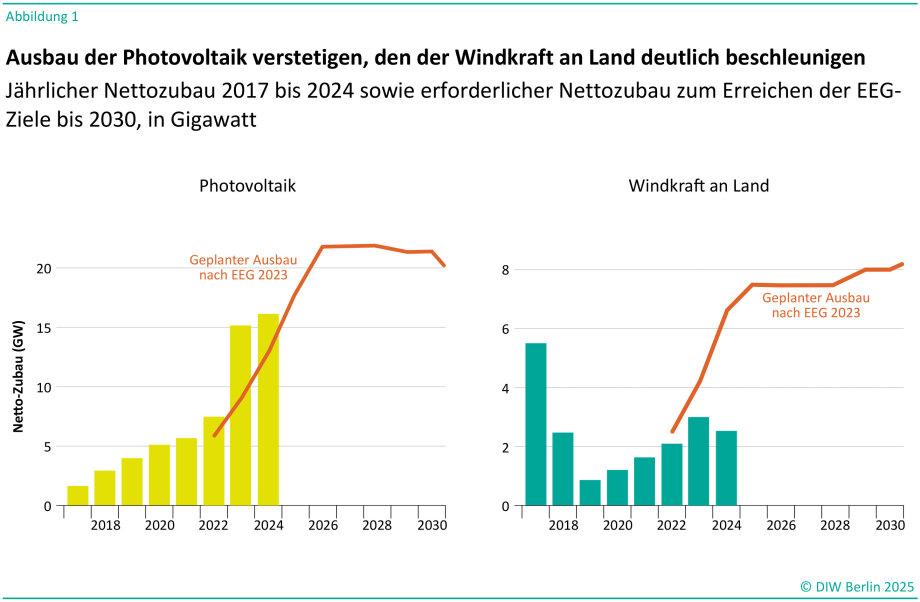Germany’s energy transition: Next government must sustain progress and accelerate key sectors
Germany’s energy transition has made significant strides under the current ‘Ampel’ coalition government, particularly in solar energy expansion and infrastructure improvements for electricity and hydrogen networks. However, challenges remain, especially in wind power, heat pump deployment, and electric mobility. To meet the 2045 climate neutrality goal, the next federal government must maintain momentum and accelerate sector coupling, ensuring the efficient integration of renewable energy across heating, transport, and hydrogen production.
Solar power has seen rapid growth, with installed capacity reaching 99 gigawatts (GW) by the end of 2024, marking a 60% increase during the coalition’s tenure. This expansion is on track to double by 2030, requiring an annual addition of 18 GW. Meanwhile, wind energy is lagging behind schedule, with onshore wind capacity at 64 GW, a modest 14% increase. To reach the 2030 target of 115 GW, expansion must accelerate to at least 7 GW per year. While the government has improved permitting and land allocation, the next administration must ensure continued support to sustain this momentum.
Offshore wind expansion has been slower, reaching just over 9 GW by the end of 2024. However, recent tenders for 16.8 GW in 2023 and 2024 are expected to drive growth in the coming years. To meet the ambitious 30 GW target by 2030, the next government must continue issuing tenders and enhancing infrastructure development.
Beyond renewables, Germany must rapidly advance sector coupling. Heat pump adoption is far behind schedule, with only 1.9 million installed by 2024—far from the 6 million target for 2030. Clear policy direction and stable incentives are essential to drive adoption and phase out fossil-fuel heating systems. Similarly, electric vehicle (EV) expansion is progressing too slowly, with just 1.7 million battery-electric cars registered. To reach the 15 million target by 2030, stronger incentives and an expanded fast-charging network are needed.
Hydrogen infrastructure also requires urgent action. Germany’s National Hydrogen Strategy aims for 10 GW of electrolysis capacity by 2030, but currently, only 1% has been achieved. The next government must accelerate project approvals, secure green hydrogen imports, and support domestic electrolysis to ensure supply meets demand.
Efficient integration of renewable energy into the system is another priority. Flexibility in electricity markets must be enhanced through smart meters, improved grid management, and incentives for energy storage solutions. Policymakers should also shift from a broad “one million charging points” target to a more strategic focus on fast-charging infrastructure for both passenger and freight transport.
The phase-out of fossil fuels must also be clearly defined. While coal is set to be eliminated by 2038 at the latest, a structured exit strategy for natural gas is still lacking. Without clear policies, ongoing LNG terminal investments may create false expectations about the long-term role of gas. A managed decommissioning of gas networks and stronger support for electric heating alternatives are necessary. Similarly, Germany must accelerate the transition away from oil-based heating and transportation fuels.
Carbon capture and storage (CCS) should remain a last-resort solution for hard-to-decarbonize industries rather than an excuse to prolong fossil fuel use. The next government must prioritize electrification and green hydrogen over reliance on CCS.
The new administration has a crucial role in maintaining the pace of Germany’s energy transition. Policymakers must provide clear direction, accelerate the deployment of renewables, and enhance energy system integration while ensuring fossil fuel phase-outs remain on track. A stop-and-go approach would undermine investor confidence and delay the country’s path to climate neutrality. By building on the progress made, the next government can secure Germany’s leadership in the global energy transition.
Authors: Von Wolf-Peter Schill, Claudia Kemfert, Adeline Guéret, Franziska Holz, Alexander Roth and Felix Schmid
Source: DIW Berlin - Deutsches Institut für Wirtschaftsforschung










